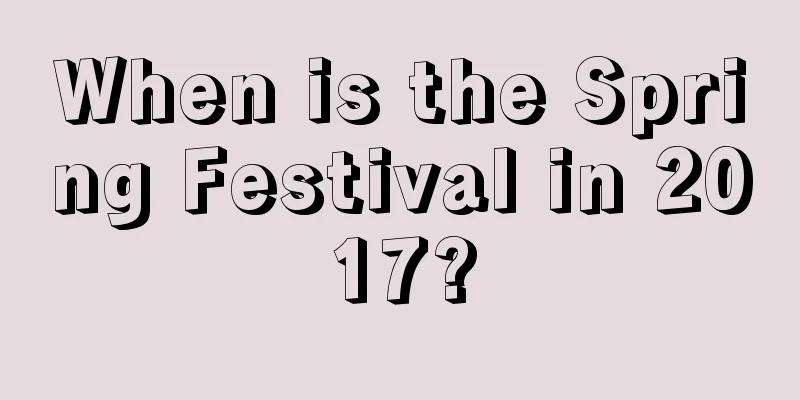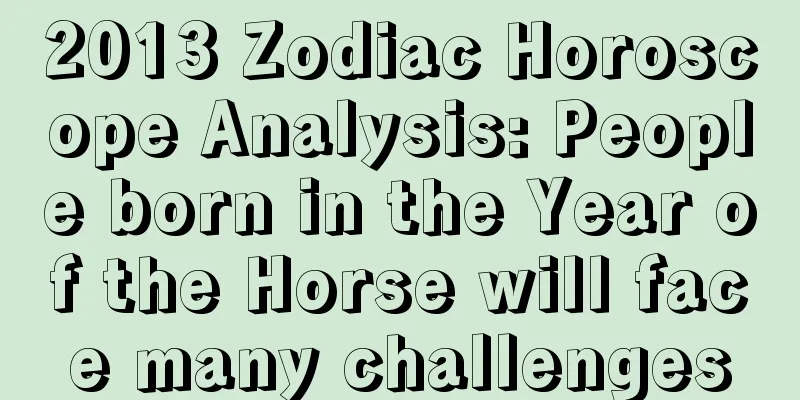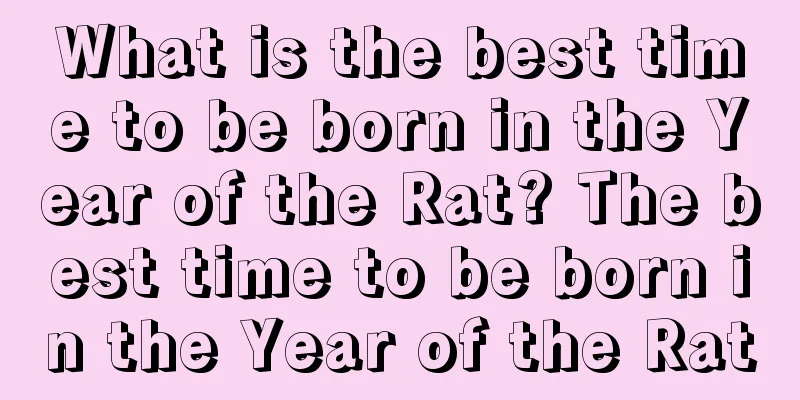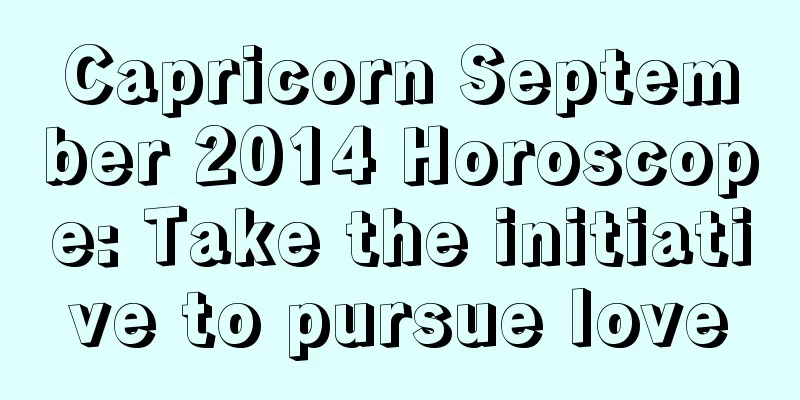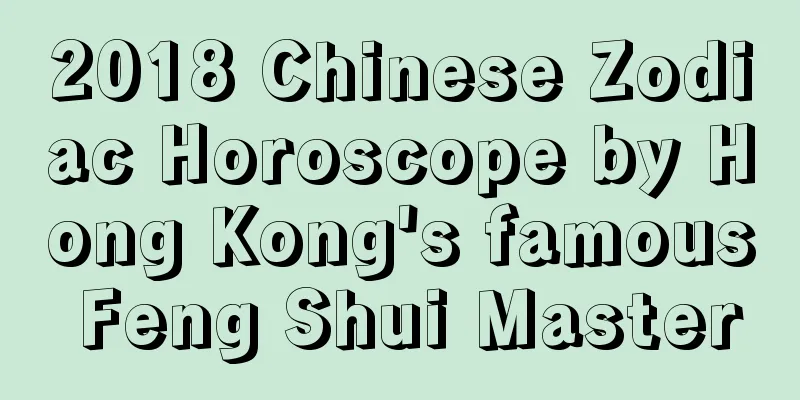What is the first day of the first lunar month? Do you know what the first day of the first lunar month is?

|
As an important traditional festival, the Spring Festival has various small festivals starting from the first day. Each festival is very lively and brings a lot of joy to our lives. So what festival is on the first day of the first lunar month? What festival is on the first day of the first lunar month? The first day of the first lunar month was called the Spring Festival Yuanri, Yuanchen, Yuanzheng, Yuanshuo, Yuandan, Suidan, Suishou, Suizhao, Xinzheng, Shouzuo, Sanyuan or Nian, since the first year of Taichu of Emperor Wu of Han Dynasty, the first day of the first lunar month of the summer year (lunar calendar) is regarded as the "Suishou" (i.e. "year"), and the date of the New Year's Festival has been fixed and continues to this day. The New Year’s Day was called “New Year’s Day” in ancient times. After the Revolution of 1911, the Gregorian calendar (solar calendar) was adopted to count years, and January 1 of the Gregorian calendar was called "New Year's Day", and the first day of the first lunar month was called "Spring Festival". Customs of the first day of the first lunar month pay a New Year call In ancient times, the original meaning of the word "New Year's greetings" was to congratulate the elders on the New Year. New Year greetings usually start at home. On the morning of the first day of the New Year, after getting up, the younger generation should first greet the elders and wish them good health, longevity and all the best. After receiving the greetings, the elders will distribute the "lucky money" prepared in advance to the younger generations. After paying New Year's greetings to the elders at home, people will also congratulate each other with a smile when they meet outside, and say auspicious words such as "Congratulations on making a fortune", "Good luck in all seasons", and "Happy New Year". Neighbors or relatives and friends will also visit each other to pay New Year's greetings or invite each other for drinks and entertainment. Opening firecrackers On the morning of the Spring Festival, firecrackers are set off first to bring good luck. These are called "door-opening firecrackers". After the sound of firecrackers, the ground is covered with red fragments, as bright as brocade, which is called "Mantanghong". At this time, the streets were full of auspiciousness and joy. Fortune telling In the old days, the Han people would predict the harvest of the new year based on the weather during the first few days of the new year. The theory originated from Dongfang Shuo's "Sui Zhan" in the Han Dynasty, which said that eight days after the year, the first day is the chicken day, the second day is the dog day, the third day is the pig day, the fourth day is the sheep day, the fifth day is the cow day, the sixth day is the horse day, the seventh day is the human day, and the eighth day is the grain day. If the day is sunny, the things it governs will flourish; if the day is cloudy, the things it governs will not prosper. Later generations followed this custom and believed that it was auspicious if the weather was clear, windless and snowless from the first to the tenth day of the lunar month. Later generations developed the fortune-telling into a series of sacrificial and celebratory activities. There is a custom of not killing chickens on the first day of the lunar month, not killing dogs on the second day, not killing pigs on the third day... and not executing people on the seventh day. Sticker Chicken Painting Chickens In ancient times, people would paint chickens on doors and windows during the Spring Festival to drive away evil spirits. The "Xuan Zhong Ji" written by a person from the Jin Dynasty talked about the celestial rooster on the Dushuo Mountain mentioned above. It said that when the sun just rose and the first ray of sunlight shone on the big tree, the celestial rooster crowed. As soon as it crows, all the chickens in the world start to crow. Therefore, the chicken cut during the Spring Festival actually symbolizes the celestial chicken. However, there is also a saying in ancient mythology that the chicken is a transformed version of the Chongming bird. It is said that during the reign of Emperor Yao, friendly nations offered tribute of a kind called the Chongming bird, which could ward off evil spirits. Everyone welcomed the arrival of the Chongming bird, but the tribute envoys did not come every year. So people carved a wooden Chongming bird, or cast a bronze Chongming bird and placed it at the door, or painted a Chongming bird on doors and windows to scare away evil spirits and ghosts so that they would not dare to come again. |
<<: 2020 Spring Festival Blessings Short Text Messages for the Year of the Rat
Recommend
Susan Miller Weekly Horoscope 2016.12.26-1.1 New Year's Eve brings interesting social activities
December 25th is a very important day for everyon...
The face of a blessed woman reveals what a blessed woman looks like
Everyone's appearance has its own characteris...
Tang Liqi's complete horoscope for the 12 zodiac signs in December 2016: Libra, the star of positivity and destruction, enters the workplace
How is the Libra fortune in December 2016? Next, ...
Psychological test: Will you marry a rich man?
Most girls want to marry a rich man and marry int...
The constellation of men who can't forget their ex and always can't help but contact their ex
When a love comes to an end, the two people are u...
What are the benefits of praying to Buddha for safety?
When we believe in Buddhism and burn incense and ...
The Leo man's reaction when he meets true love is to be humble enough to bloom into love
What do Leo men show when they meet true love? Wi...
Which zodiac signs are most likely to force people to break up?
Love is a common emotional topic, so once one par...
Can I pray for blessings on the 21st day of the third lunar month in 2022? What is the hexagram today?
Praying for blessings is a traditional custom in ...
Susan Miller's Aquarius Horoscope for February 2016
Susan Miller said that in February 2016, Aquarius...
Nice names for girls with the surname Guan in 2022
A name is a birth gift given to us by our parents...
What are the psychological shadows of the twelve constellations? What are the psychological shadows of the twelve constellations?
Stories are indispensable in life. However, where...
April 15, 2022 Today's God of Wealth Position Today's Mahjong and Card God of Wealth Position
The good or bad fortune of wealth is affected by ...
Aquarius will not show it on their face even if they are happy when someone confesses their love to them.
Everyone has a different personality, and their r...
The honesty index of the twelve zodiac signs
In a relationship, even if you know your signific...
